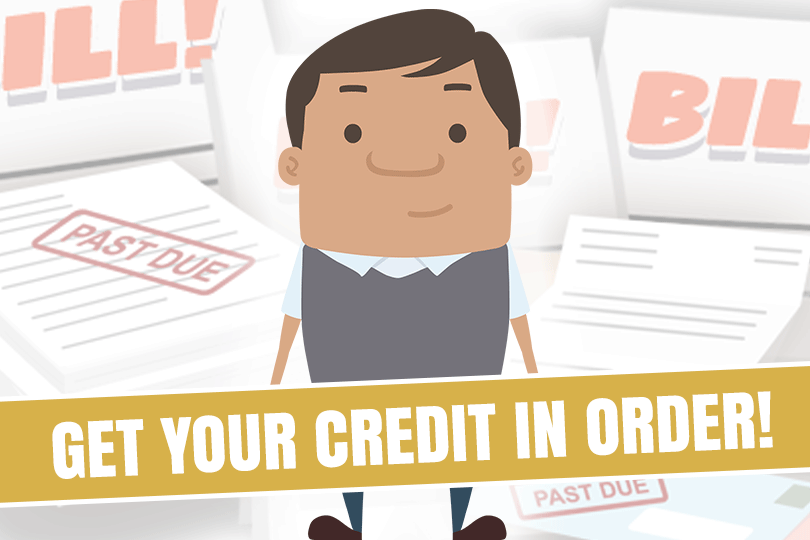When Should I Get Approved for a Home Loan?
January 31, 2022
WHAT IS A PREAPPROVAL
A mortgage pre-approval starts with an examination of your finances. It is when a lender uses a potential borrower’s financial information, credit score, debt-to-income comparison, employment history, and other critical information to determine whether or not to loan them a specific amount of money. When applying for a pre-approval with a lender, you will know exactly how much you can borrow to buy a home and at what interest rate. Depending on your lender, you may be able to lock in the interest rate for when your final mortgage application gets approved.
THE PREAPPROVAL PROCESS
To start the pre-approval process, you will need to file an application with a lender. The application typically has eight sections that cover a number of different details.
- Loan type and terms
- Information about the property and purposed of the loan
- Applicant’s information (name, date of birth, social security number, etc)
- Employment information
- Monthly income and housing expenses
- Assets and Liabilities
- Details of Transaction
- Declarations
WHEN TO GET YOUR MORTGAGE PREAPPROVAL LETTER
The pre-approval for a home loan is typically valid for 60 to 90 days. The time limit is set by mortgage lenders because your finances and credit standing can change. You have until the set expiration date to finalize the loan with the terms outlined in the Loan Estimate. If your pre-approval expires, you will need to submit a new application with updated documentation.
Having a preapproval letter ready when you are shopping for a house gives homebuyers an advantage. The official document shows sellers that you are a serious buyer and are financially able to follow through on your offer. Sellers are more likely to negotiate on the price with buyers who are pre-approved for a mortgage, and most of the time, they choose not to entertain offers from buyers without the preapproval letter.
PRE-QUALIFICATION VS. PREAPPROVAL
While both terms are used interchangeably, it is important that you as a borrower know the difference between pre-qualifying and being pre-approved for a mortgage.
To pre-qualify for a loan, you must provide an overview of your finances, income, and debts to a lender, who then determines an amount they are likely to loan to you. That is why pre-qualifying for a loan is a useful way to estimate what kind of home you can afford.
On the other hand, the lender takes a much more in-depth look at your finances during the preapproval process, since it includes a credit check and a look at actual documentation, such as bank statements, pay stubs, tax returns, W-2 statements, etc. Consequently, the preapproval letter holds more weight when it comes to placing an offer on a home, since there is a hard inquiry into your credit, and lenders have taken the time to verify you as an eligible borrower.
Remember that a pre-approval does NOT guarantee you a loan. Your preapproval letter is contingent on whether or not the financial and employment information you provided is consistent before your loan closes. Buying a home is a big decision, and it is in your best interest to go in to it prepared with a pre-approval, so talk to your lender about your next steps on getting pre-approved!
------------------------------
RELATED VIDEOS:
Home Equity Can Secure Your Second Mortgage
Consider the Advantages of Discount Points
FHA Limits are Calculated and Updated Annually

FHA Loan Articles
April 30, 2025 In a previous post, we discussed why FHA borrowers should carefully consider whether paying for discount points truly serves their best interests, focusing on factors like short-term homeownership, opportunity cost, FHA mortgage insurance, and the prevailing interest rate environment. Discount points are an option for borrowers willing to pay a fee to lower the interest rate by a set amount. This is not right for all borrowers, and you don't want to pay for points you won't benefit from during the loan term.
April 29, 2025Are you considering buying a home with an FHA loan? You'll likely talk to your participating lender about FHA loan "discount points" – fees you pay upfront for a lower interest rate on your mortgage. The idea behind discount points is a straightforward exchange: you spend money today to reduce your interest rate. Typically, one point equals one percent of your total FHA loan. In return, your interest rate might decrease by an amount you and the lender agree upon.
April 28, 2025Home loans have various expenses that aren't apparent to a new borrower until much later in the process. What do you need to consider when making your home loan budget? It might not be complete without addressing some of the issues we cover here.
April 23, 2025 While the prospect of lower interest rates or more favorable loan terms can be enticing, there are situations where waiting is the better option. Refinancing without carefully considering your current financial circumstances is never a good idea, but careful planning in the current financial environment is even more important.
April 22, 2025First-time home buyers worry about loan approval, but there are important steps to take to increase the likelihood that the lender will approve their application for the loan or pre-approval. What do you need to know before you choose a lender?







